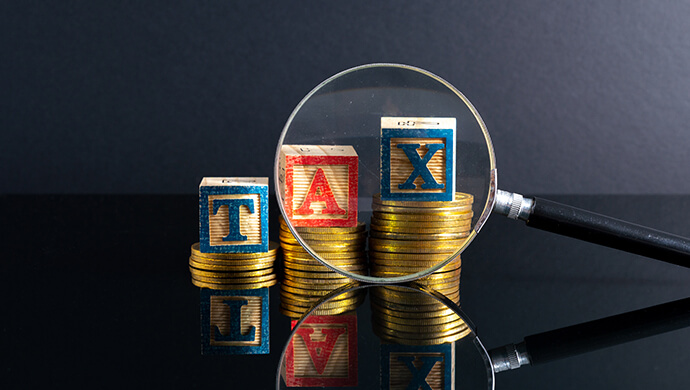The UAE is among the best countries for running a successful business. No wonder it is considered a haven for startup founders. The days are gone when all the Gulf countries, including the UAE, were dependent solely on oil resources. Since times have changed, countries are making every effort to grow their economy.
In this growth race, the United Arab Emirates is moving way ahead of other developed countries. UAE isn’t just opening ways for prime business locations, but also in the taxation ecosystem. It wouldn’t be wrong to say that the UAE has the best taxation system in the world.
In the UAE’s thriving business environment, the differences between corporate tax and VAT are two important factors that shape a company’s financial performance. While corporate tax is imposed on a company’s profit percentage, VAT (value-added tax) operates as a consumption tax on goods and services. Let’s dig deeper into this blog and get an overview of how the VAT & corporate tax are different from each other.
What is Value Added Tax in the UAE?
- The VAT in the United Arab Emirates is a tax imposed on the consumption of goods and services. This tax was introduced in 2018. The United Arab Emirates applies a minimal tax rate of 5 percent. All businesses and startups are required to register under the UAE Value-Added Tax if their taxable products exceed AED 375,000.
- VAT was the first general business tax implemented in the UAE. This system had a positive impact on the overall business ecosystem. Although there were pre-existing taxes on oil, gas, and banking, they did not affect the entire business sector.
- However, the introduction of VAT in the UAE significantly influenced the corporate environment. As discussed earlier, the UAE government does not impose taxes on every business and every location. For example, trade in the UAE free zones is VAT-free.
- Yes, you heard it right! Authorities don’t charge a single Dirham to the businesses operating within the UAE free zone. The revolutionary step of VAT execution has proved to be a milestone for the UAE economy as it lowered the government's dependency on oil & gas businesses.
Almost all goods and services in the United Arab Emirates are encompassed under value-added tax (VAT). However, few goods and services are exempt from Value Added Tax, meaning that they are charged with a rate of zero percent VAT. The following industries are some of the other value-added tax exclusions in the UAE:
- Local passenger transport
- Residential property
- Provision of select financial services
Even though the UAE's VAT rate is 5%, travelers are eligible for an 85% refund of the VAT they paid on UAE-purchased items. The tax form was a significant change to the lives of customers paying VAT in the United Arab Emirates.
An Overview of Corporate Tax
The latest tax implementation in the UAE is the corporate tax. There were no corporate taxes in the UAE before 2022. Since it is the modern era, where continuous development is the only way to a country’s growth, the UAE government has announced a corporate tax on business profits. The Federal Tax Authority issued a corporate tax law on 9th December 2022.
Most Middle Eastern countries are dependent on fuel-based resources. As the UAE expanded its economy apart from the oil & gas sector, applying a corporate tax law to diversify its revenue sources was an important call. The UAE government is making every possible effort to attract people from around the world. Since they spend heavily on innovation and technology, it may increase the UAE’s revenue by implementing such levies.
In the UAE, a corporation tax of 9 % shall be imposed on taxable income of more than AED 375,000.
Key Difference between VAT & Corporate Tax in the UAE
- The distinction between corporate tax and VAT lies in their tax framework. Corporate tax is a profit-driven tax, and VAT operates as a consumption-based levy.
- Corporate taxes are imposed on businesses and are settled directly by them. Whereas VAT is borne by the consumers only at the time of purchasing goods and services.
- Corporate tax requires enterprises to disclose their profits and fulfill tax responsibilities according to the government-mandated corporate tax structure. In contrast, under the VAT system, businesses are responsible for collecting VAT from customers and remitting it to the Federal Tax Authority.
The United Arab Emirates has the easiest tax system, but you need to partner with business experts who bring overall taxation expertise to your business. Taxperts by Markai Corporate Services guides you for what’s best for your business and ensures assessing tax benefits and filing taxes timely.


